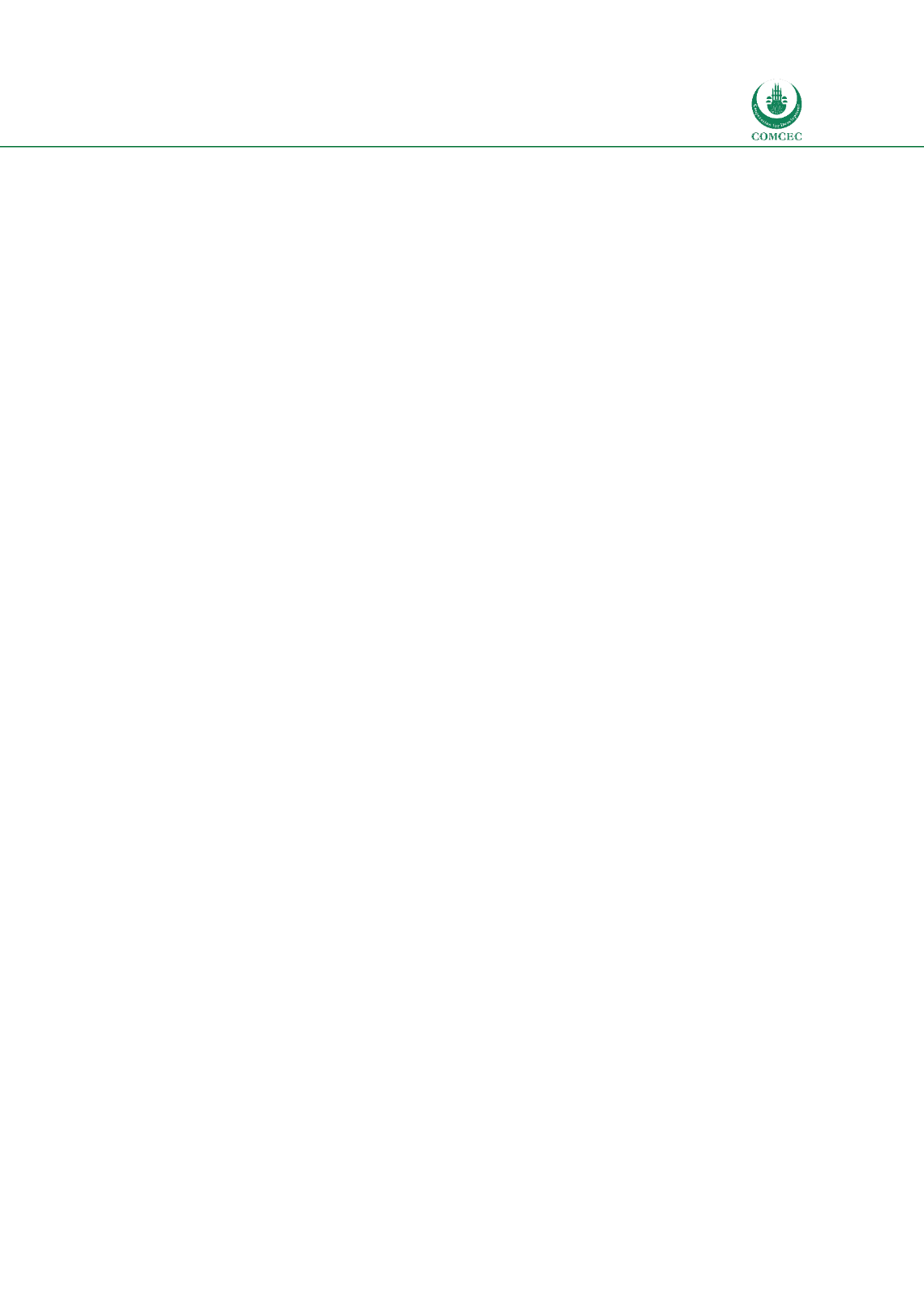

National and Global Islamic Financial Architecture:
Prolems and Possible Solutions for the OIC Member Countries
157
4.12. United Arab Emirates (UAE)
The United Arab Emirates (UAE) is host to the Dubai Islamic Bank, the first Islamic bank
established in 1975. Since then, Islamic finance has witnessed tremendous growth in the
country making it one of the dominant markets for Islamic finance. Currently the country has a
total of 44 Islamic financial institutions (excluding takaful) which includes 8 fully-fledged
banks, 23 Islamic windows, 12 finance companies and one investment company (CBUAE 2104:
67). Islamic banking assets valued at USD 136 billion constitute 21.6% of the total banking
assets in the country and 15.4% of the global Islamic banking assets (CIBAFI et. al 2015: 18; EY
2016: 52). From a total of 60 national and foreign insurance companies operating in the
country with a total premium of USD 9.128 billion in 2014, 11 are takaful companies with
contributions of USD 1.314 billion constituting around 14.3% of the total premiums (Hodgins
2015). UAE also plays a key role in sukuk issuances. UAE issued 68 sukuk during 2001 to 2014
raising USD 45.986 billion constituting 39.35% of the value of global sukuk issues (IIFM 2014).
Other than the domestic financial market, UAE also hosts two free international markets: the
Dubai International Financial Centre (DIFC) and the Abu Dhabi Global Market (ADGM). DIFC is
a financial free zone located within the emirate of Dubai. The DIFC has been in existence since
2004. There are approximately 500 entities either incorporated or registered within the DIFC
(Khan and Walker, 2010).
DIFC has its own body of laws which are completely segregated from
the laws applicable across UAE. DIFC also has its own court system and its own regulator, the
Dubai Financial Services Authority (DFSA) (Khan and Walker, 2010).
DFSA also regulates the
offshore NASDAQ Dubai.
Abu Dhabi Global Market is a broad-based international financial
centre for local, regional and international institutions that was established in 2013. ADGM
hosts three independent authorities: the Registration Authority, the Financial Services
Regulatory Authority, and the Abu Dhabi Global Market Courts. In collaboration with other
international financial centres, global institutions and regulators, ADGM develops and supports
member institutions with the regulatory framework, legal jurisdiction and attractive business
environment they need for sustainable business growth (ADGM 2016).
4.12.1. Legal Infrastructure
Supporting Islamic Finance Laws
The legal system in the UAE, a federation of seven Emirates, is founded in its Constitution.
Article 6 of the constitution stipulates that the “Shari’a is the main source of legislation.” The
UAE legal system is founded upon the principles of the civil law doctrine which are heavily
influenced by Egyptian law (Ali and Massey, 2013). However, having Sharia as the general
guidelines for the laws in the UAE, principles of Islamic dealings both commercial and personal
are embedded in some of the existing laws, such as the Civil Code (Federal Law No.5 of 1985)
and the Commercial Transactions Law No.10 of 1982 (
Ahmed, 2016;
Ali and Massey 2013).
While several laws affect banking in UAE, the most relevant laws governing financial
institutions and their operations include the following: Federal Law No. 10 of 1980 concerning
the Central Bank, The Monetary System and Organization of Banking; Federal Law No. 6 of
1985 concerning Islamic Banks and Financial Institutions; Federal Law No. 5 of the 1985
concerning Civil Transactions; and Federal Law No. 18 of 1993 concerning Commercial
Transactions. Other relevant laws are UAE Companies Law and Emirates Securities and
Commodities Authority Laws (Khan and Walker, 2010, 585).
All commercial banks
















